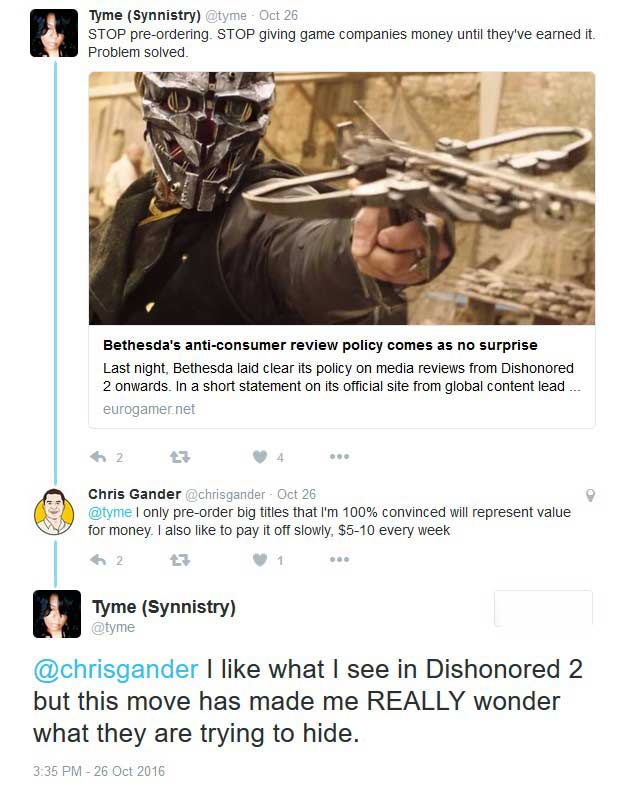E3 was an event that I used to look forward to attending. Then it became an event I used to look forward to watching. Now, I just catch the highlights. What happened over the years? I prefer having a direct connection with game developers. When I used to attend E3, the emphasis was on marketing and sales as it was a professional event. The last time I was there, which was years ago, I recommended to developers putting this information on their blogs to keep gamers interested and engaged all throughout the year. I felt my time would have been more efficiently used than what I experienced at the event.
I was happy to see Electronic Arts did not attend E3 this year. E3 needs to evolve to become more relevant and that will not happen until it is forced to. Gaming companies not attending will light a quick fire under them to evolve or die out…it can go either way. I am not against traditional media, but the ability to comfortably control how products are reviewed and consumed needs to fade away. It’s a lie that easily comes out shortly after the game is released and that lie spreads so quickly it can be more damaging than simply telling the truth.

For example, Bethesda recently changed how they handle early game access for reviews. They ended it. I was immediately suspicious. It was a badly made move to me, so close to a game release. To me, it was a dead give away something was wrong with Dishonored 2 and I was honest about it. What happened? Dishonored 2 had performance issues on the PC. Imagine how reviews would have been if reviewers received the game before release? Bethesda was trying to control the situation and they made money this time but, hopefully, gamers will remember and stop preordering games. There is no reason why gaming companies should not adhere to quality standards like other companies do. Consumers should not have to pay a premium price for an inferior product. A buggy game is inferior.
In truth, consumers are moving away from previews and reviews made by traditional media. Now, many gamers prefer to watch videos or streams to see how a game plays before purchasing. I prefer to watch gameplay videos or informational videos released by the developer than a preview from traditional media. A stream is a good option as well, giving people the chance to ask questions and interact. Things are changing for gaming media, as they do in all industries. The middle man or third party is changing from traditional media to a person the consumer feels they have a connection with.
I feel an area gamers don’t see traditional media delving in as much is indie development. This is an area where traditional media can have an impact. Indie developers need exposure, much more than AAA companies. Providing exposure for indie developers is a win/win situation for consumers and developers. It is a shame when good indie games do not thrive due to lack of exposure.
All industries change. Companies evolve and, hopefully, create better products. The gaming industry, like the music industry, is evolving. Successful businesses can see the changes coming and prepare for them appropriately. Knowing their target audience makes it much easier to be successful during the transition; it’s a simple process of giving their customers what they want. Gamers are making it clear traditional media sites are not satisfying them as they once did. Gaming companies are realizing it is better to have a direct connection with consumers. How sales are made is changing in the gaming industry. Time will tell how this all plays out. I look forward to seeing where this new journey leads us.






